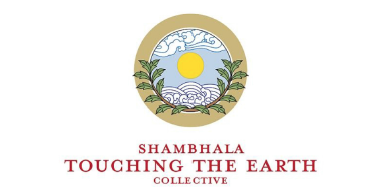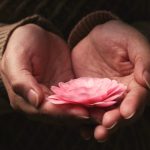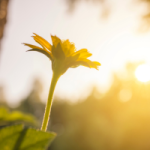Friday
Gratitude
By Emily Takahashi
An excerpt from the Shambhala Touching the Earth Collective November 2024 Newsletter
My friend Irene asked if I would write something about gratitude, in honor of the season of Thanksgiving. My first thought was, what could I say that hasn’t been said about this simultaneously simple and profound human attitude? I don’t know about you, but it was not commonplace when I was a kid to verbalize what we were thankful for at Thanksgiving. That seems to be a more recent development. These days there are seminars, webinars, blogs, books, and meditations, on the importance of gratitude, not just once a year, but as an everyday practice. For some, it is a morning ritual to think of 10 things to be grateful for before getting out of bed.
As soon as you say the word gratitude, the body softens a little, the heart tenderizes, and the mind wanders toward those gifts we value so deeply: family, friends, teachers, community, pets, fall colors, blue skies, rivers, food on the table, any amount of good health, even time itself. The lists can be long and just reflecting on them for a moment can shift our perspective markedly. The mental and even physical health benefits of gratitude are well documented. Giving thanks can be as much a part of one’s self-care routine as taking a supplement or getting good exercise.
All this is a wonderful trend in a world that often appears to be collapsing on systemic levels. And perhaps, there is even a correlation between the level of dis-ease we experience in so many spheres of life with a corresponding need to reflect on gratitude. It is easy to feel gratitude when things are going our way (cue “Oh What a Beautiful Morning”). But what about when things are not?
I write this just days before what feels like the United States’ most critical election, perhaps ever. The outcome of this election will not just affect Americans, but will have ripple effects throughout the world. What will the role of gratitude be if the outcome is not how I want it to be? And it feels like the world just got darker? No matter what happens, we are facing unprecedented levels of uncertainty. Not exactly an easy time for a relaxed sense of gratitude.
Gratitude shares the same root as the word gratis, which means “free.” Maybe it’s a stretch to say that gratitude can be a portal to freedom, but, on the other hand, maybe not. If my gratitude is not conditional on the set up of external conditions, am I not, in theory at least, free? Free to appreciate life, no matter how it presents itself?
The New Yorker recently published excerpts of the prison diaries of Alexei Navalny, the Russian dissident. He spoke about how he practiced “prison Zen,” mentally preparing for the worst and accepting it, so he could endure—a kind of positive hopelessness that allowed him not to be dependent on things turning out in his favor (which they didn’t). With that shield against despair, he was nonetheless able to rejoice. He had not compromised his principles, his commitment to his voters, his dignity, even his sense of humor, no matter how brutally he was treated. For that, he was able to say, on his last birthday:
“I want to thank all the people I’ve met in my life. The good ones for having helped and [who are] still helping me. The bad ones for the fact that my experience with them has taught me something. Thanks to my family for always being there for me! But the biggest thank-you and biggest salute I want to give today goes to all political prisoners in Russia, Belarus and other countries. Most of them have it much harder than me. I think about them all the time. Their resilience inspires me every day.”
It’s hard to imagine anyone being in a worse situation than Navalny in terms of external conditions, but he had learned to practice an unconditional gratitude that allowed his internal conditions to remain aligned with all that he believed in, and with what felt like inherent goodness. Such a lesson for challenging times!
We are reminded of the fabled Buddhist monk, who chased by a tiger, jumps off a cliff, preferring the rocks below to being mauled. However, he is caught halfway down on a vine, where he discovers a plump, juicy strawberry growing right before his eyes. He promptly picks the strawberry and pops it in his mouth, savoring its flavor.
Come hell or high water, there is always a strawberry of gratitude growing somewhere. Can we savor it?
***
To read the complete issue of the Shambhala Touching the Earth Collective November 2024 Newsletter please click here.
Author Archive
no responses - Posted 10.24.24
by John Light Mirror neurons are the progeny of neuroscience What are mirror neurons? Mirror neurons have been written about extensively in the popular press, and they have been interpreted as a source of connection between people. Subject A watches subject B perform a common activity while researchers observe ...continue
no responses - Posted 10.18.24
By David Takahashi Is there Gravity, or Does the Earth Suck? The phrase “yuuga ni ochiru” (優雅に落ちる) in Japanese translates to “gracefully falling” or “elegantly descending” in English. It combines the word “yuuga” (優雅), meaning “graceful” or “elegant,” with the verb “ochiru” (落ちる), which means “to fall” or ...continue
no responses - Posted 10.08.24
A Word from Mark These poems have not been published previously. They have a particular influence from my experience with meditation and the Shambhala path. I studied poetry with Allen Ginsberg when I attended Naropa Institute in Boulder, Colorado in Summer of 1976, where I also studied ...continue
no responses - Posted 10.04.24
October 2024 A Message from the Director and the Team at Gampo Abbey Just a few weeks ago, we celebrated the gate-closing ceremony for the three-year retreat. Eleven people have journeyed along a path to this moment and are eager to settle in to begin this first section ...continue
no responses - Posted 09.17.24
By Carrie Ingoglia An Excerpt from the Shambhala Community Blog When I started learning about the Buddha’s teachings, I got stuck on the idea of non-attachment in Buddhism. I was especially struck by two ideas central to the Buddhist teachings on attachment, both of which I initially resisted: That ...continue
1 response - Posted 09.06.24
by Dickie Swaback An excerpt from the Shambhala Touching the Earth Collective September 2024 Newsletter I FIND IT VERY VALUABLE and stimulating to read various authors on the same or somewhat related topics. Currently, my interests lean in the direction of topics of interdependence, systems thinking, climate concerns, humanity, ...continue
no responses - Posted 08.30.24
From the Chronicles of Chögyam Trungpa Rinpoche By The Chronicles – August 22, 2024 Alice Haspray, Halifax, Nova Scotia Alice Haspray, beloved wife of Richard, mother of Noah, grandmother of Oscar, and teacher of many of us, passed from this life on Tuesday, August 20, 2024 at 5:45 PM ...continue
no responses - Posted 08.16.24
By Frederick Meyer Shambhala Blog Article, August 9, 2024 Self-love—to feel, honor, and appreciate our own goodness—is among the most beautiful and powerful things there is. We are always worthy of self-love, but because of the difficulties of life, we may struggle to find it. Fortunately, meditation can ...continue
no responses - Posted 07.30.24
By John Seex The terms “empathy” and “compassion” are often used interchangeably, but from a Buddhist perspective ultimately they are very different. In this article, we’ll explore compassion and empathy, the place and value of each, and the core differences between compassion vs. empathy. Let’s start by looking ...continue
no responses - Posted 07.16.24
An Excerpt from the Shambhala Touching the Earth Collective July/August 2024 Newsletter So long, farewell… For the last two years, The Shambhala Touching the Earth Collective has had Jim Wagner shepherding our newsletters and website. He accepted a position that has been largely hidden from the sangha. Over these past years, Gregory ...continue
no responses - Posted 07.05.24
A Personal Account of My Weekthun Retreat at Drala Mountain Center by Eric Bergstrom Confess your hidden faults. Approach What you find repulsive. Help those you think you cannot help. Anything you are attached to, let it go. Go to places that scare you. –Machik Labdron I was headed to Drala Mountain center in ...continue
no responses - Posted 06.11.24
A Shambhala Online Interview with Touching the Earth Collective Shambhala Online spoke with Gregory Webster and Irene Woodard from Shambhala Touching the Earth Collective and asked them several questions about the upcoming Eco-Dharma Series being held July 16-20, 2024. The Eco-Dharma Talk Series: Exploring Where a Mindful ...continue
3 responses - Posted 05.29.24
By Alley Smith We can deny its existence, but grief is patient and waits as long as we have the energy to ignore it. Timothy G. Serban Over the years I have heard it said that every person needs to tell their story of loss and grief. This enables individuals to ...continue
no responses - Posted 05.20.24
By John Light An Excerpt from the Shambhala Online Blog, posted April 29, 2024 How does meditation affect the amygdala? Much has been written about meditation and the amygdala, but almost all of it was written from the perspective of 20th century understanding of the brain. The advent ...continue





















